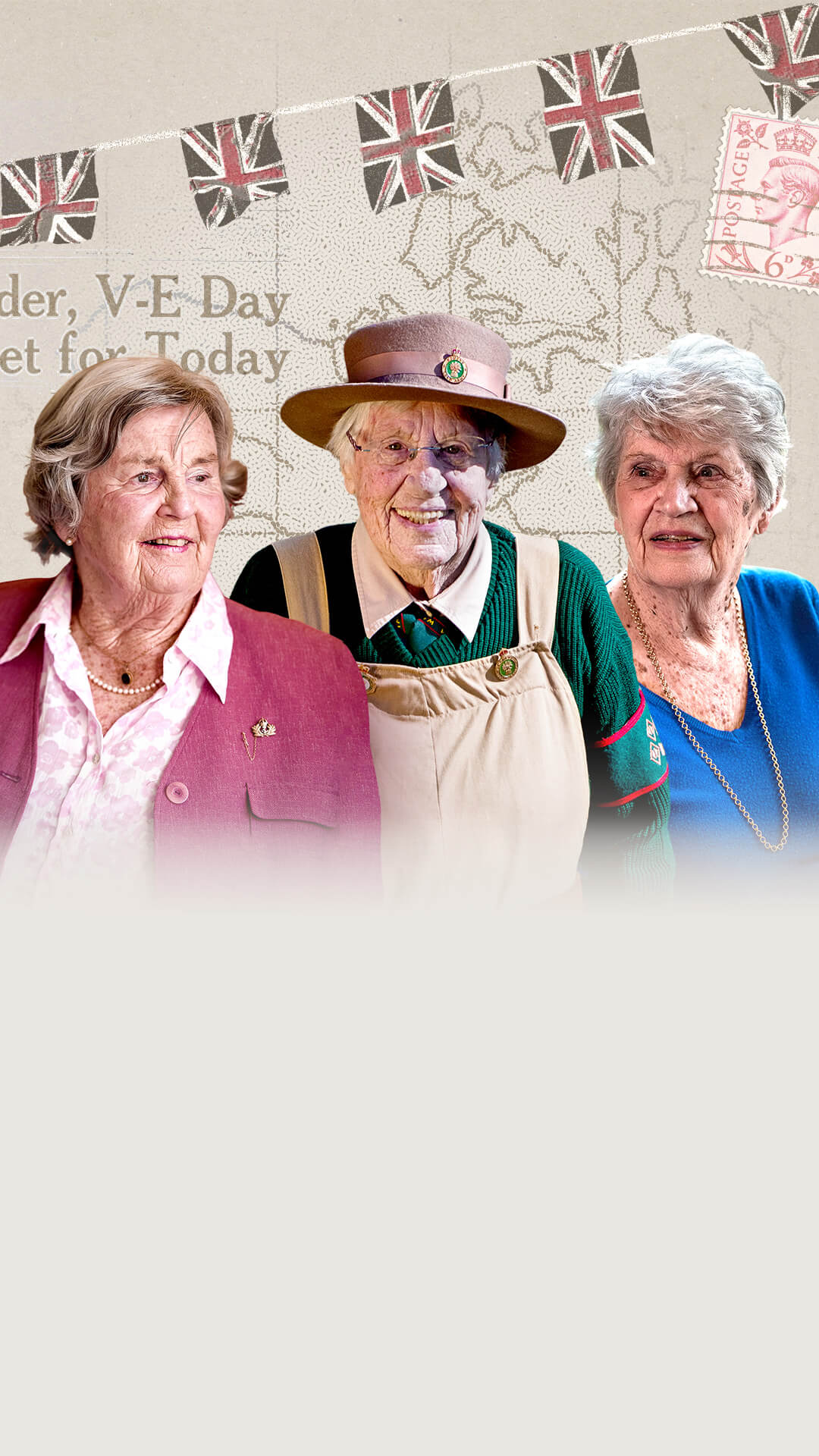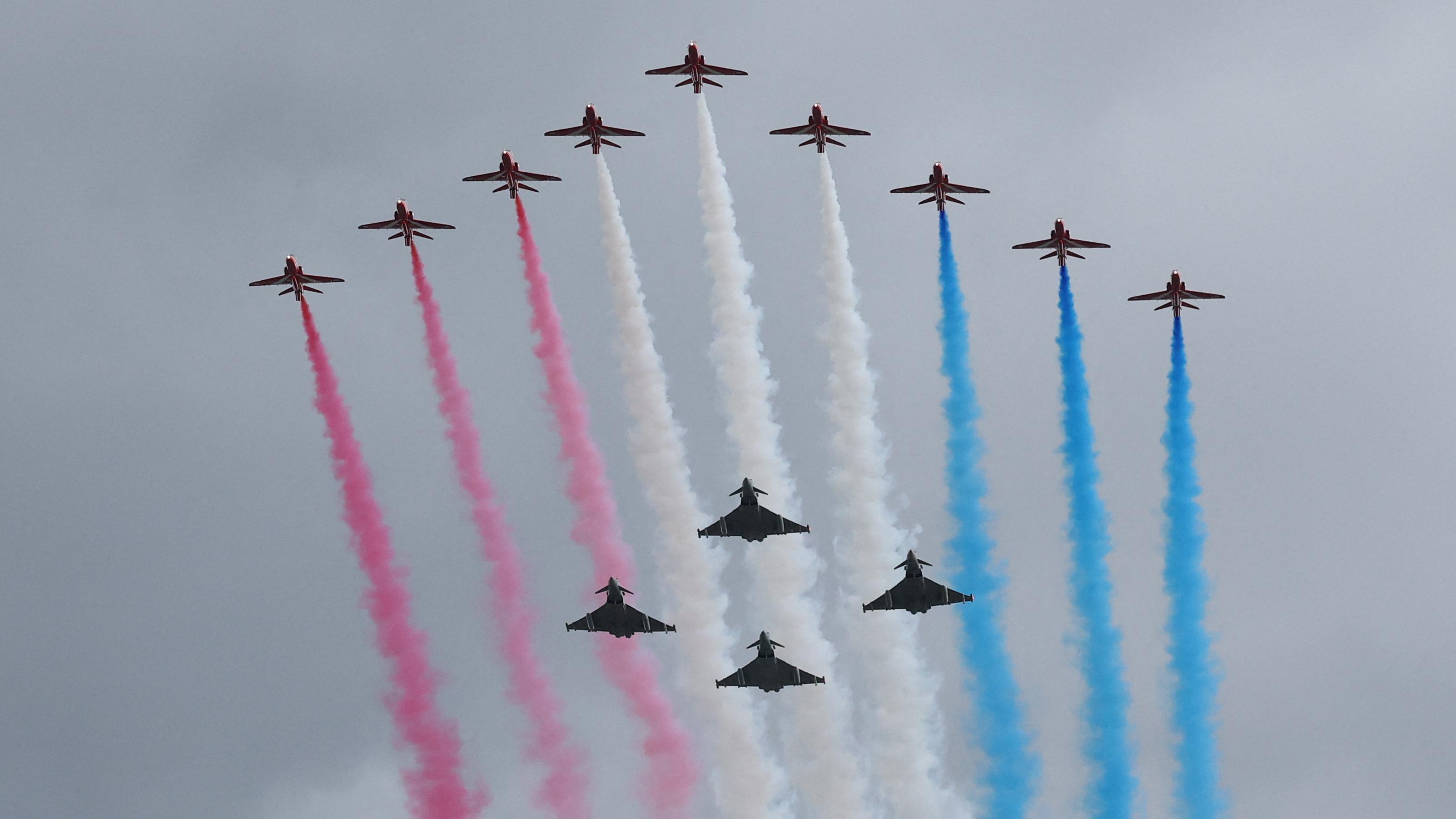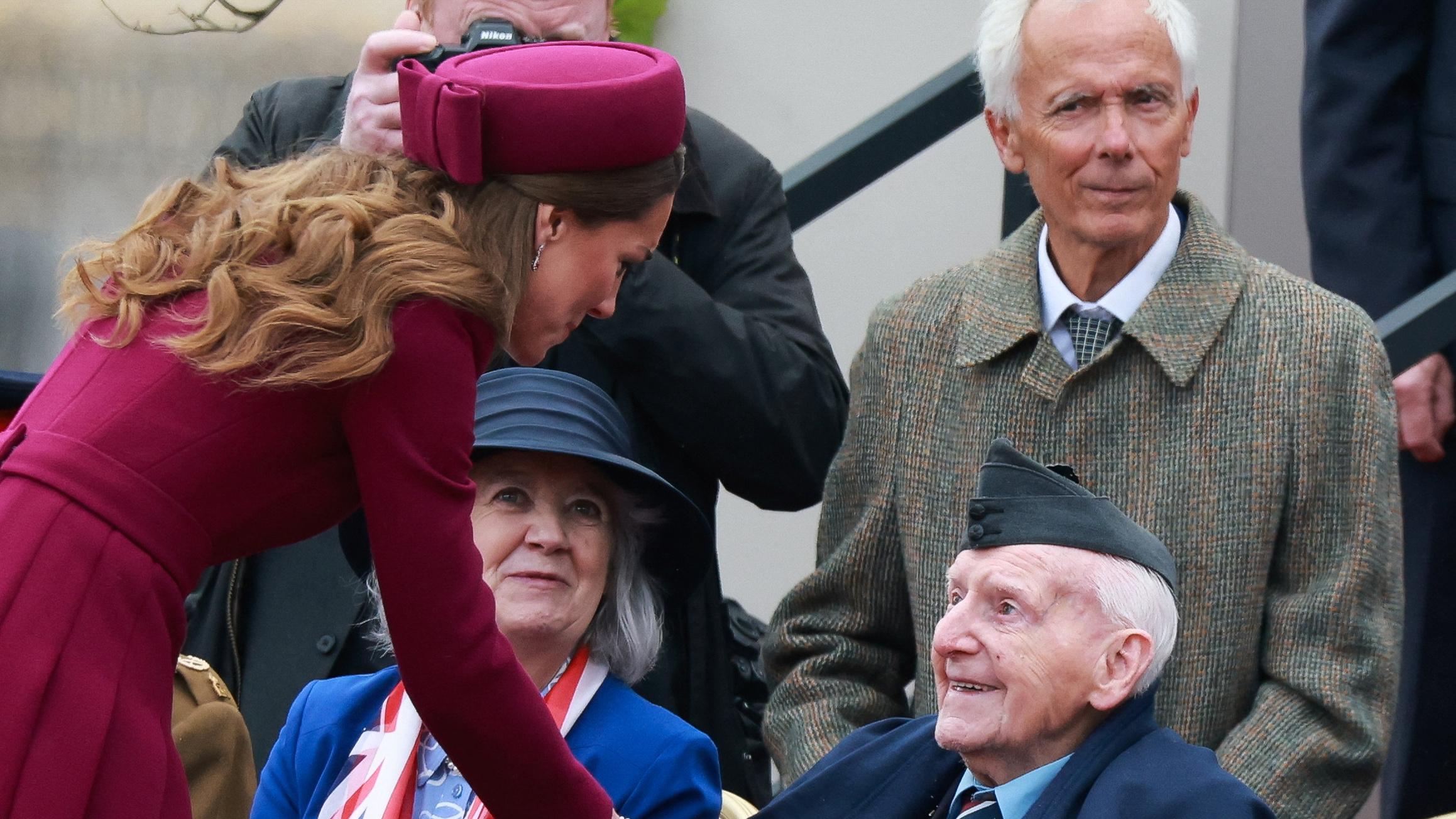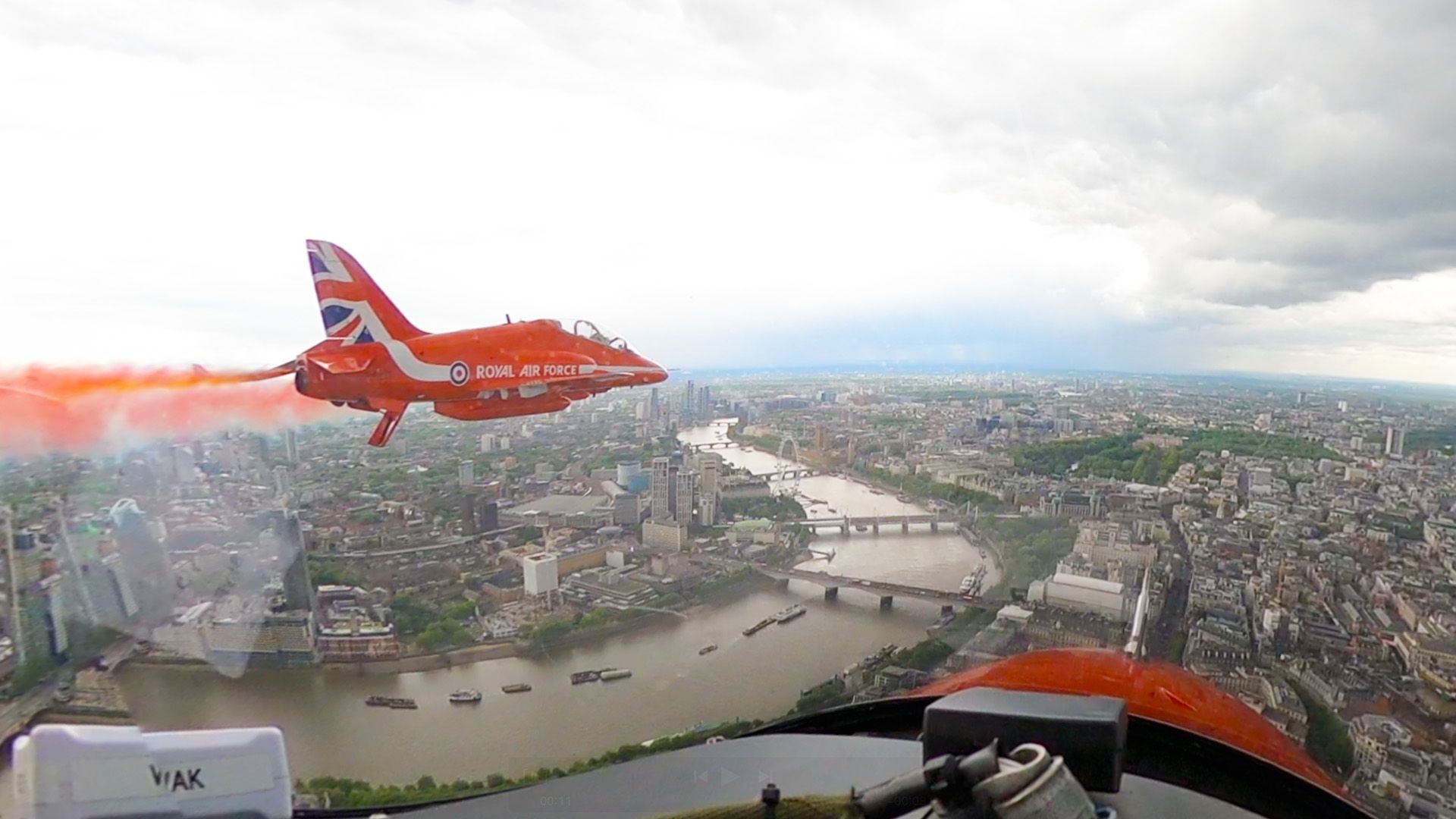As World War Two raged across Europe, those back in Britain faced their very own battles on the home front. The war meant nearly six long years of enemy bombings, food rationing and the heartache of missing loved ones who were away fighting.
But on 8 May 1945, cheers rang out across the country as Prime Minister Winston Churchill declared victory in Europe. The BBC has spoken to three women who shared their stories of VE Day - then and now.
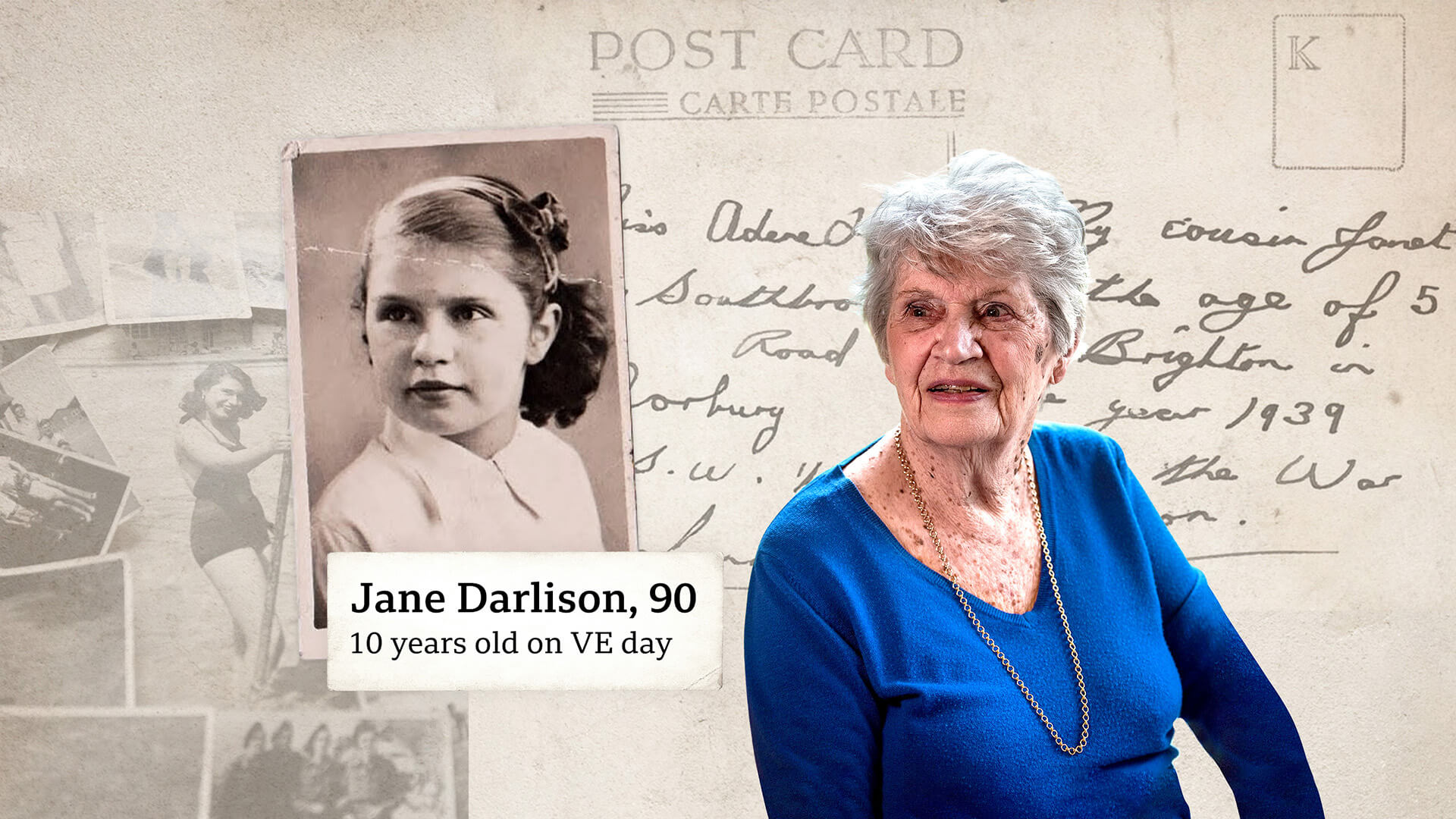
Fizzy lemonade and fish paste
Aerial attacks had proved relentless in Thornton Heath, greater London, where Jane Darlison was growing up in a maisonette with chickens in the back garden. She was just five when war broke out in 1939.
Now 90, Jane remembers one particular air raid vividly. She was huddled in the family’s Anderson shelter in the garden with her mother and brother. But her grandmother, who had been shelling peas in the kitchen, wasn't able to get in.
A "doodlebug", or flying bomb, could be heard above. It suddenly went quiet. The bomb fell, and obliterated the houses on the other side of the road, Jane recalls.
"We came out of the shelter thinking, 'My grandmother, my grandmother!'" says Jane.
"My father was at the allotment just down the road. He came out with a lettuce in one hand and a knife in the other and he didn't know whether we were going to be alive or not."
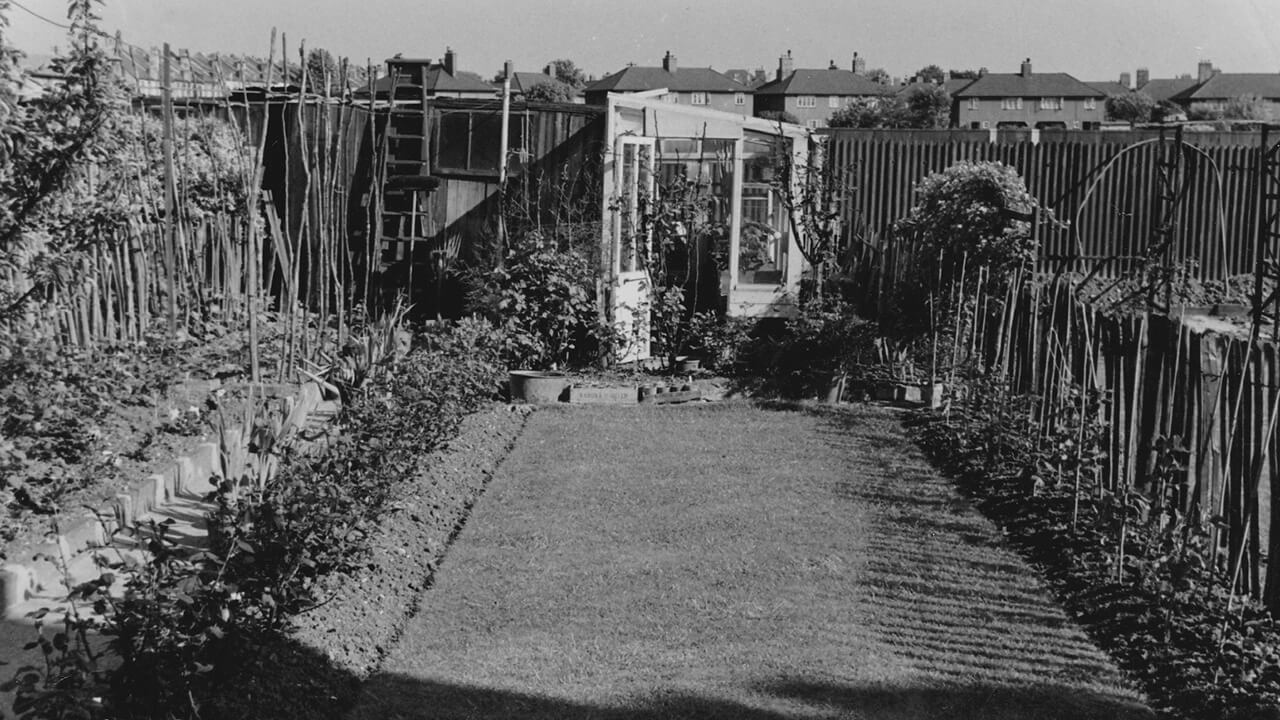
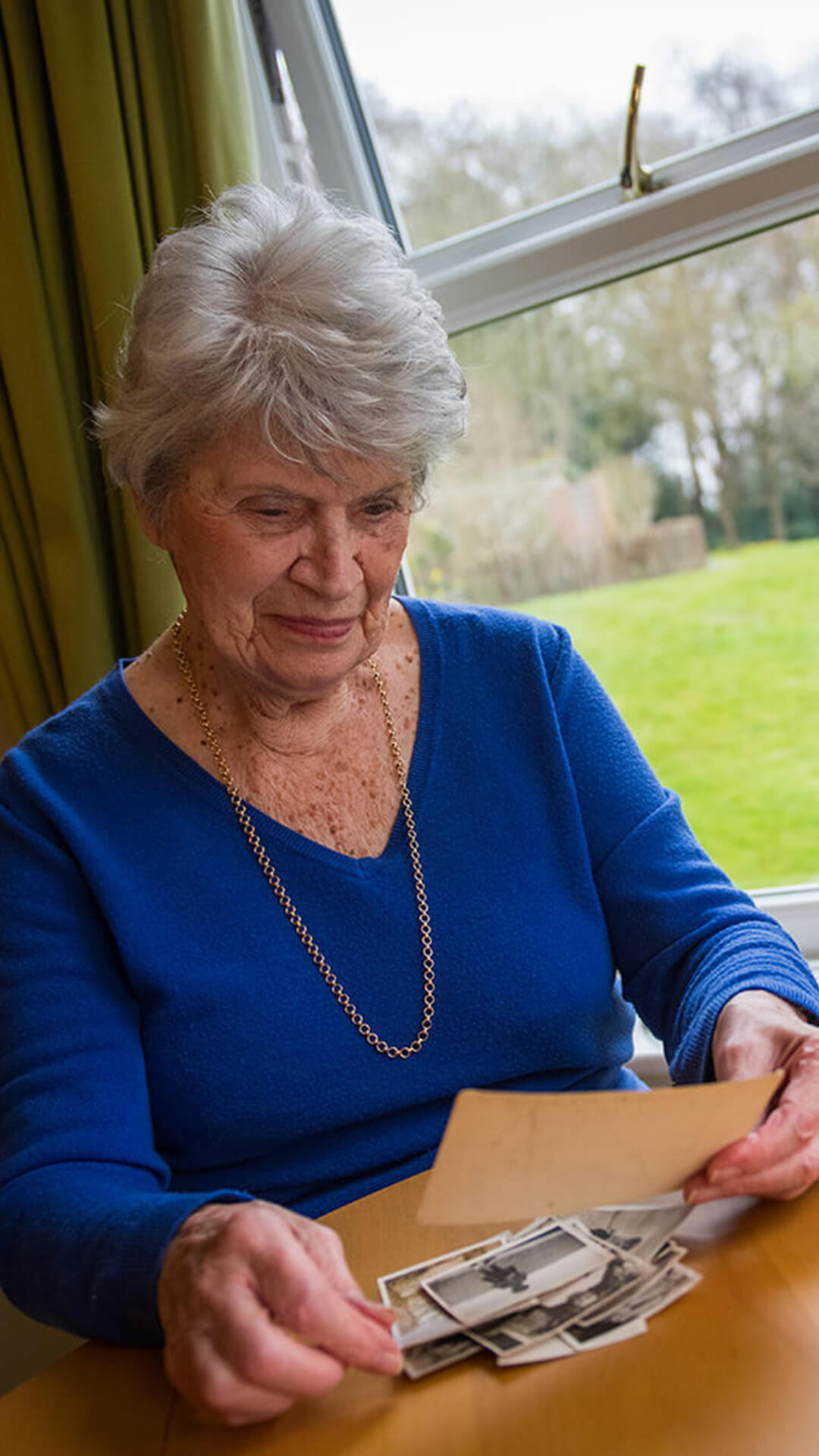
About a mile away, in Norbury, Jane's aunt and 15-year-old cousin, Deanie, would hide under the stairs during air raids. A direct hit one day killed them both, she says sadly.
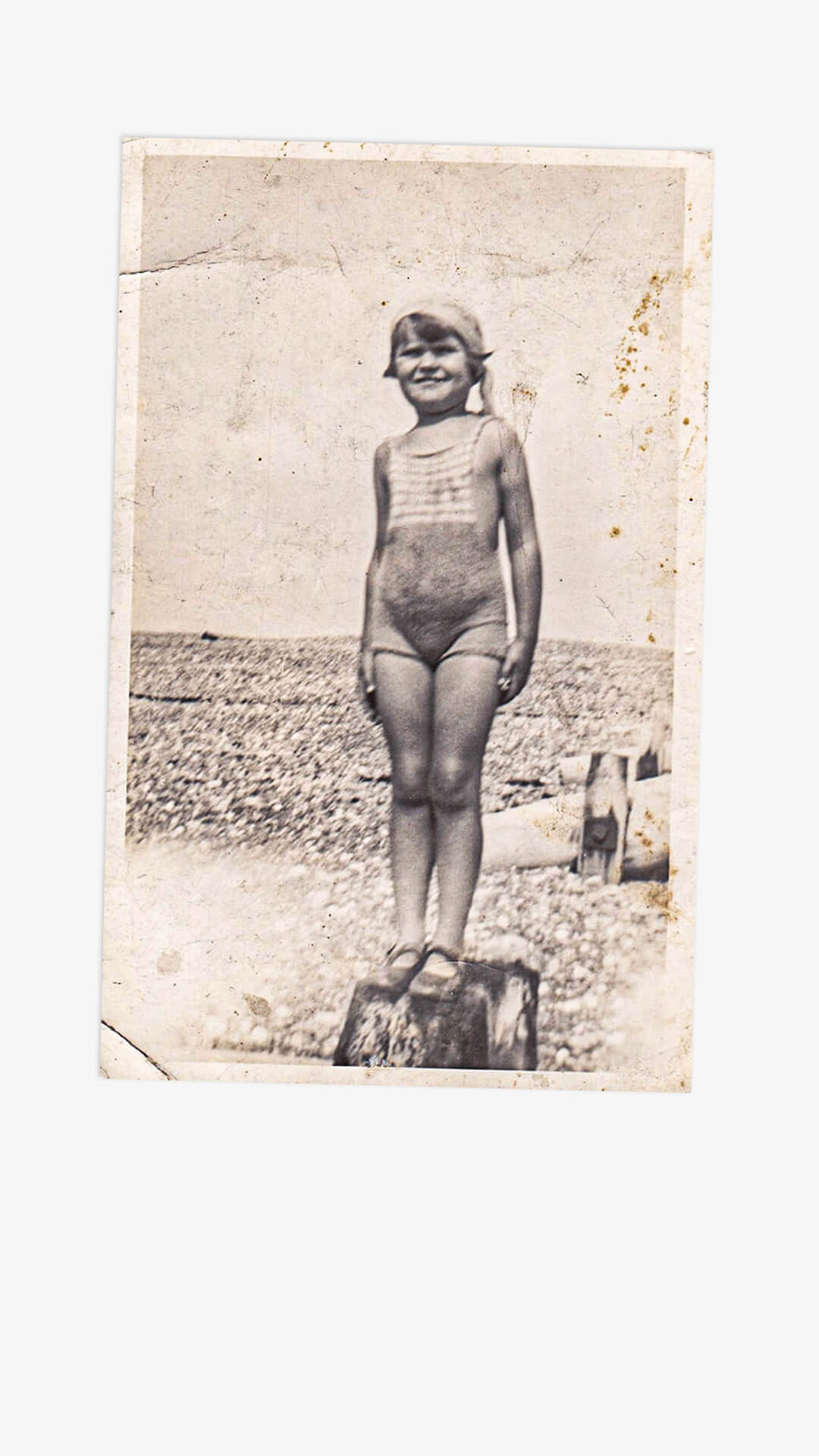
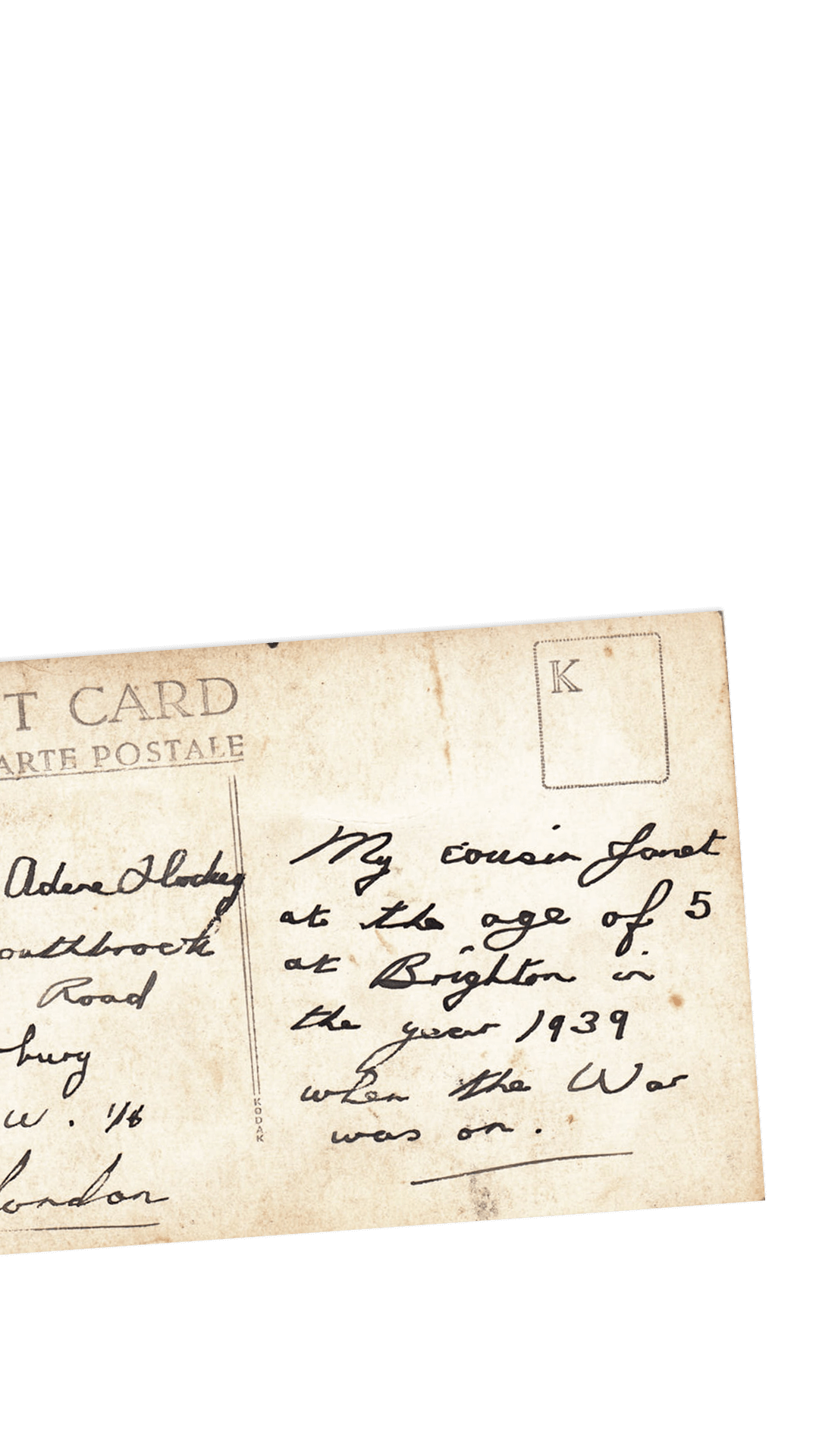
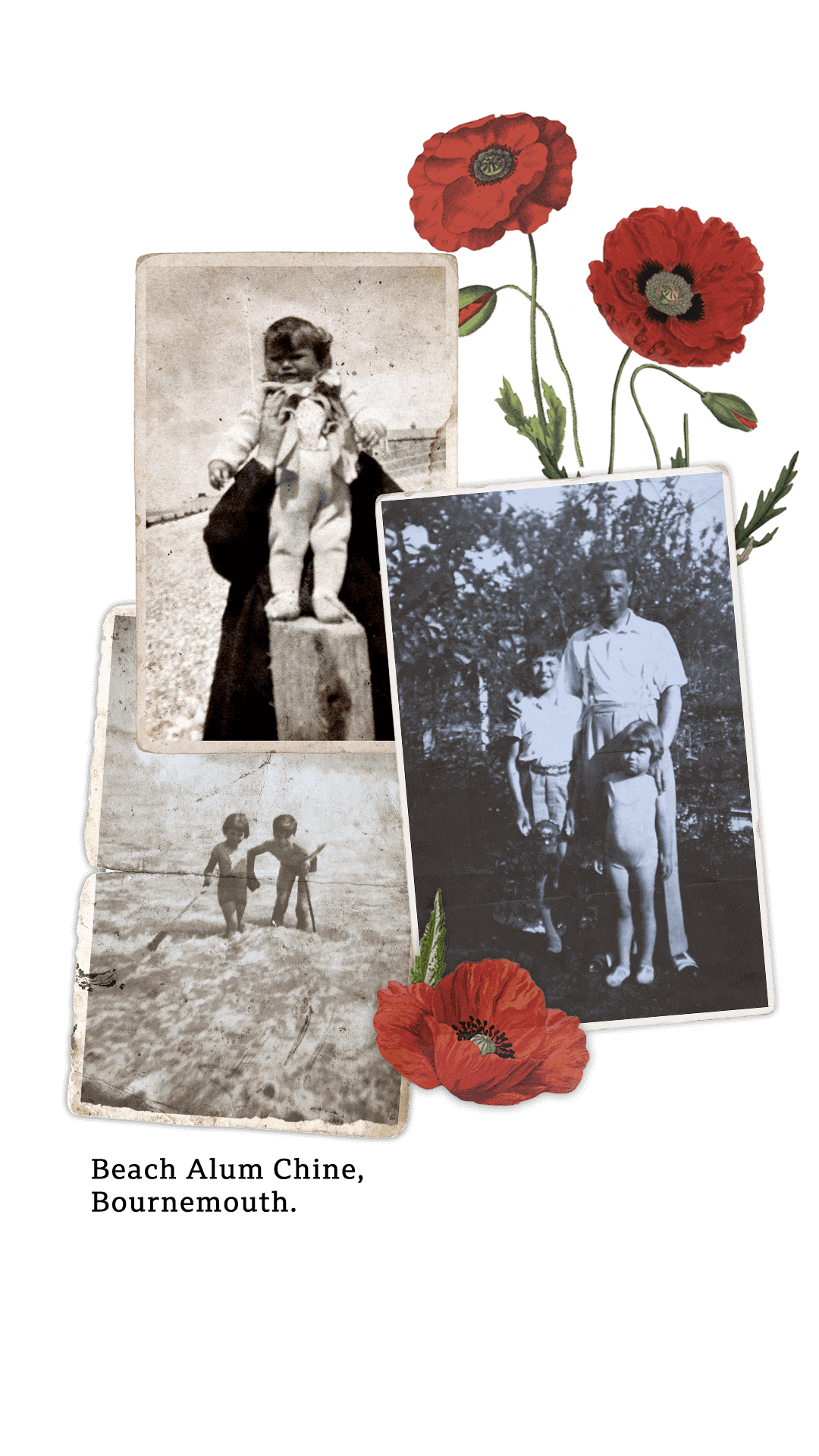
When it was finally announced that Germany had surrendered, Jane recalls the excitement of being able to celebrate victory in Europe at a street party with her neighbours on 8 May 1945.
She remembers making hats for the party and looking forward to the blancmange, jelly and fish paste. But there was also something very special on the menu that day.
"My father said, 'Well, you know, it's all right having fish paste, but it'd be nice to have some meat', which would be a luxury," says Jane. "And so he decided he'd kill a couple of chickens [from their garden] - but not my favourite one.
"My mother was in the kitchen plucking these chickens with feathers everywhere."
Jane tucked into chicken sandwiches with brown bread, fizzy lemonade and a Victoria sponge made by her mother with the eggs, she recalls.
"These were an absolute treat because we didn't get many treats and we really relished it all," she says.
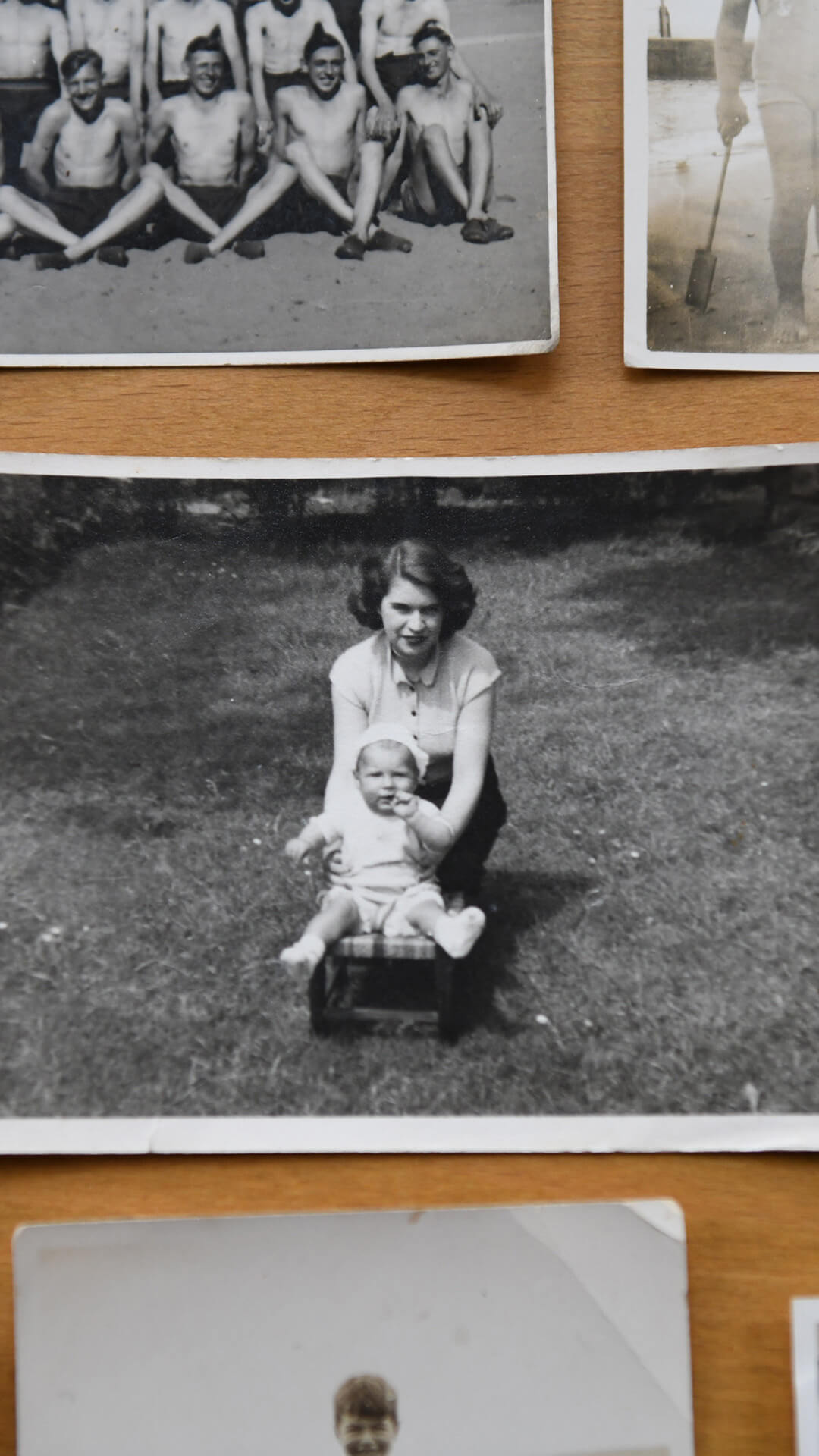
Now based in Surrey, Jane plans to spend the 80th anniversary of VE day with her family and follow the events on television.
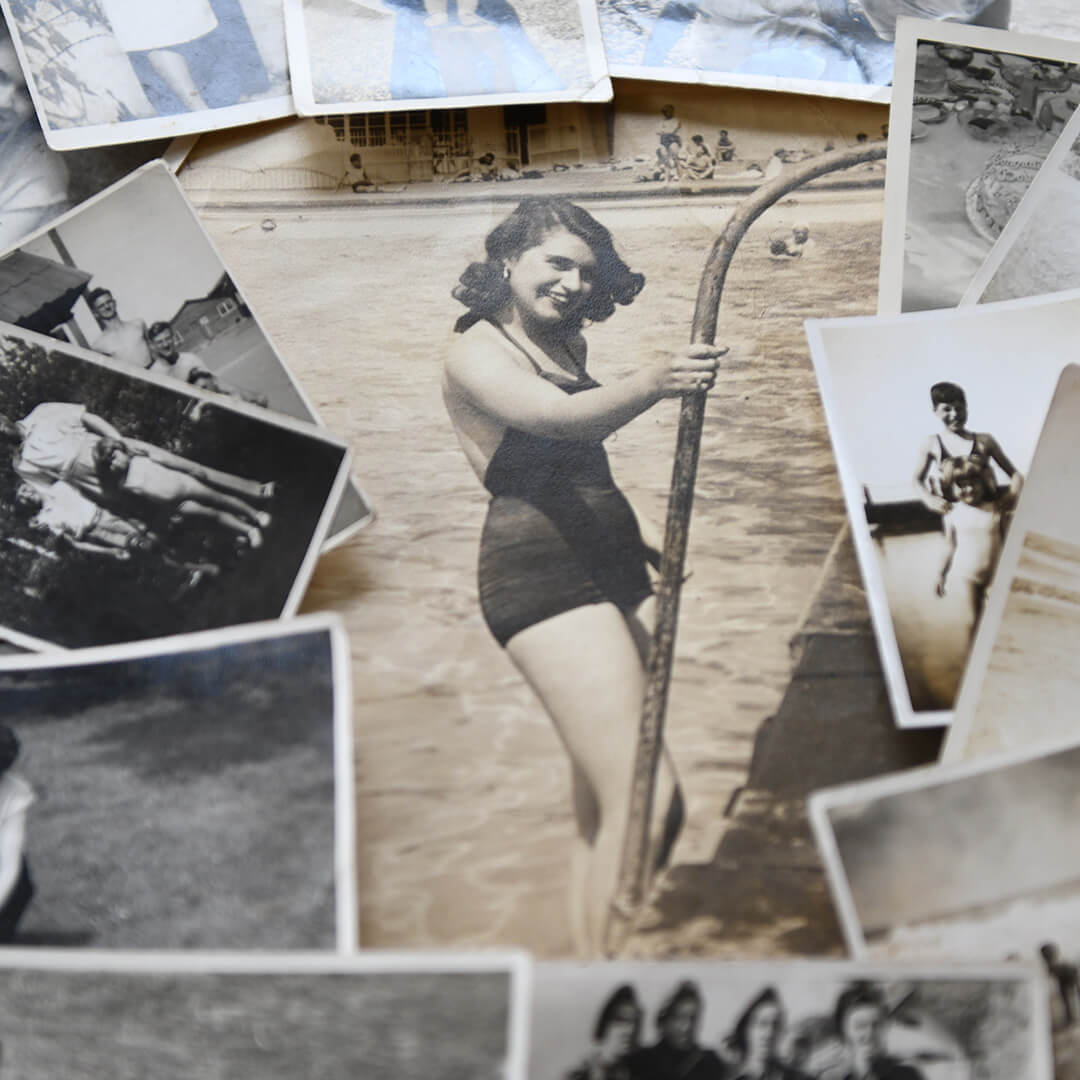
After the end of WW2, the hope was for lasting peace to endure, long after the bunting and flags had been taken down.
But as war returned to Europe in 2022 with the Russian invasion of Ukraine, Jane says she feels sad about the situation today.
"I feel for my grandchildren and my great-grandchildren" she says. "It's such a toxic world we live in now."
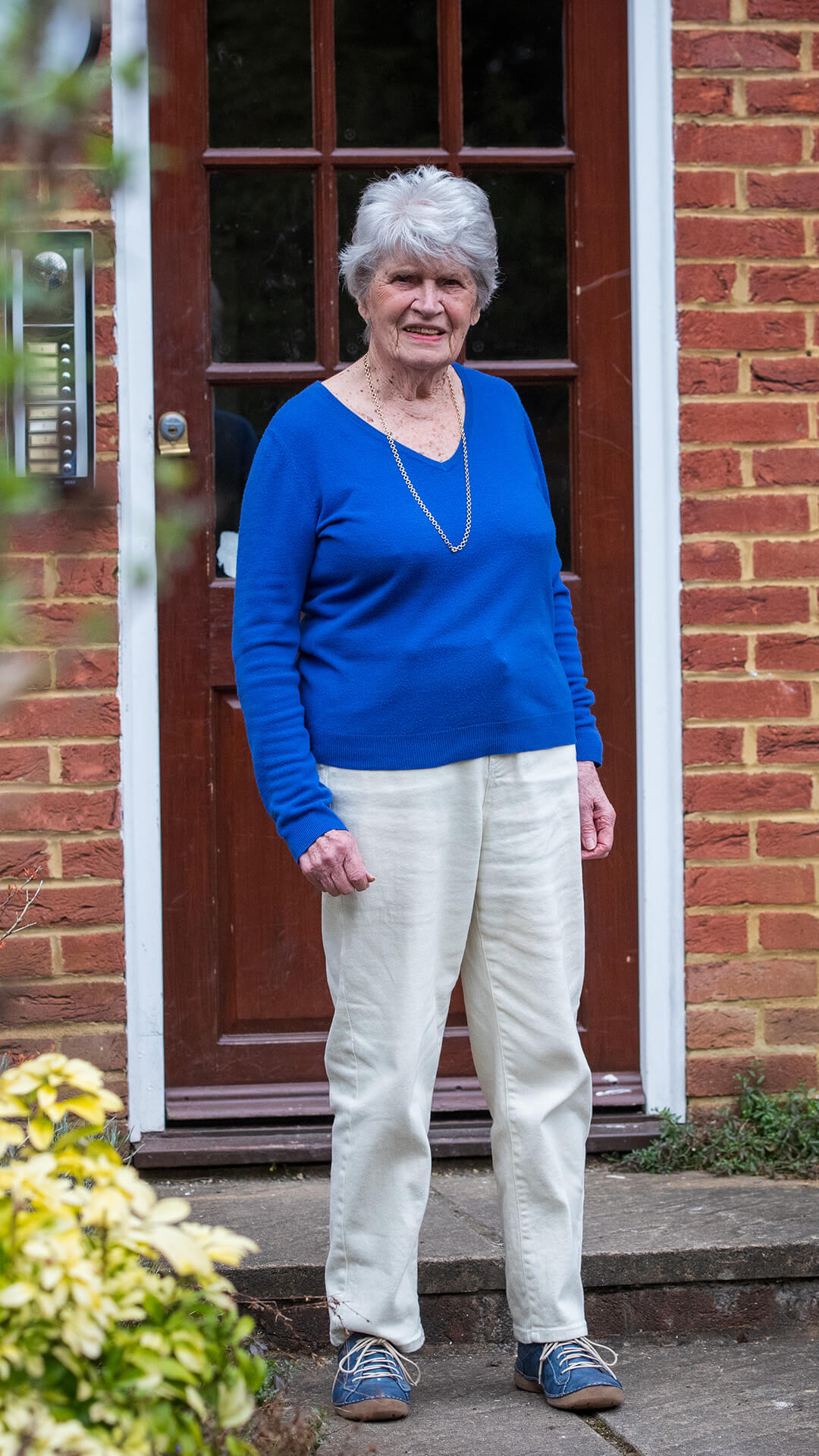
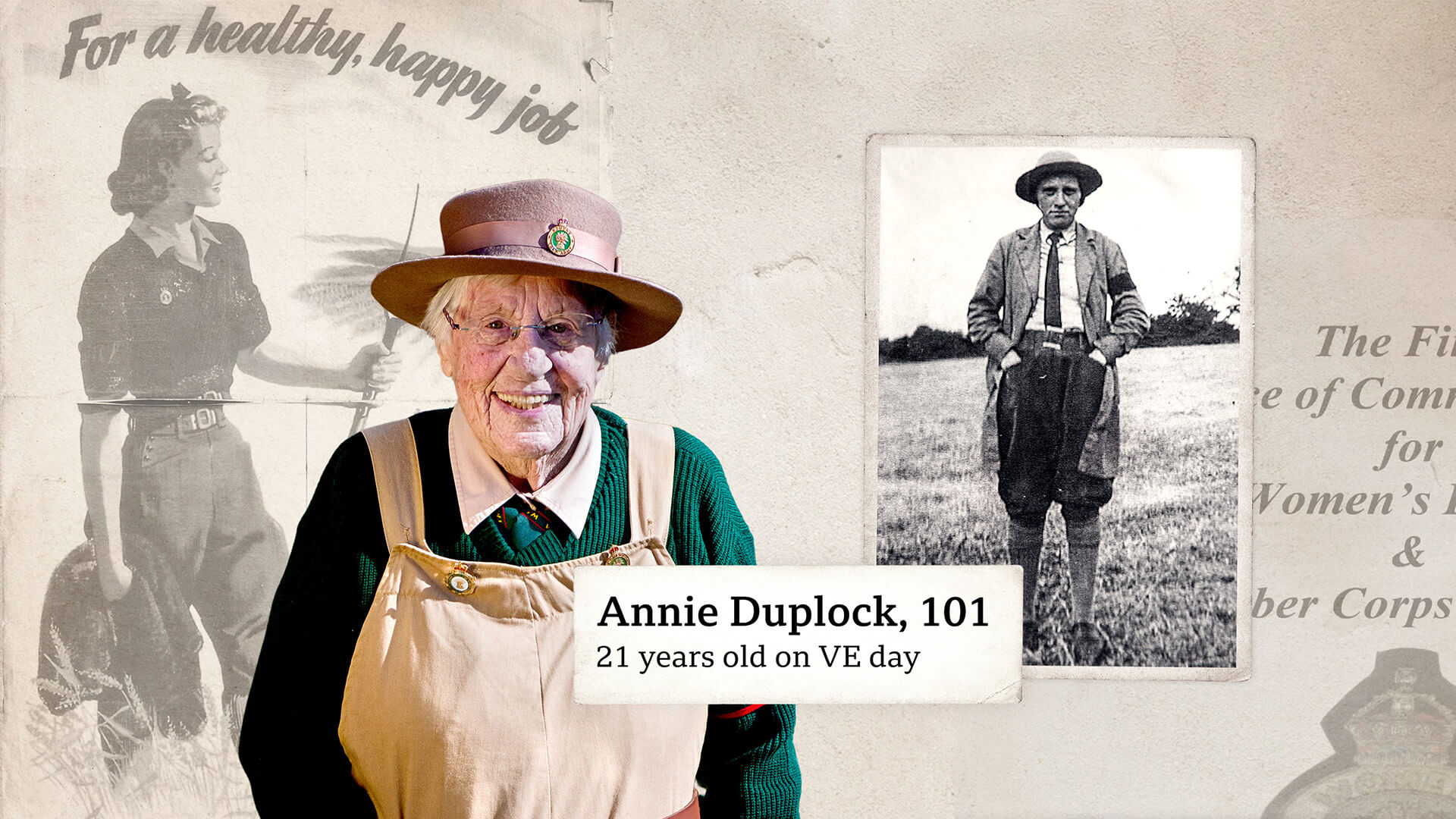
'I'd go back if I could'
Sitting in her garden in Leicestershire, Annie Duplock is dressed in a dark green jumper, dungarees and a brown felt hat.
It is the same uniform she wore 80 years ago as a member of the Women's Land Army, working on a farm near Hinckley.
But Annie is now 101 years old.
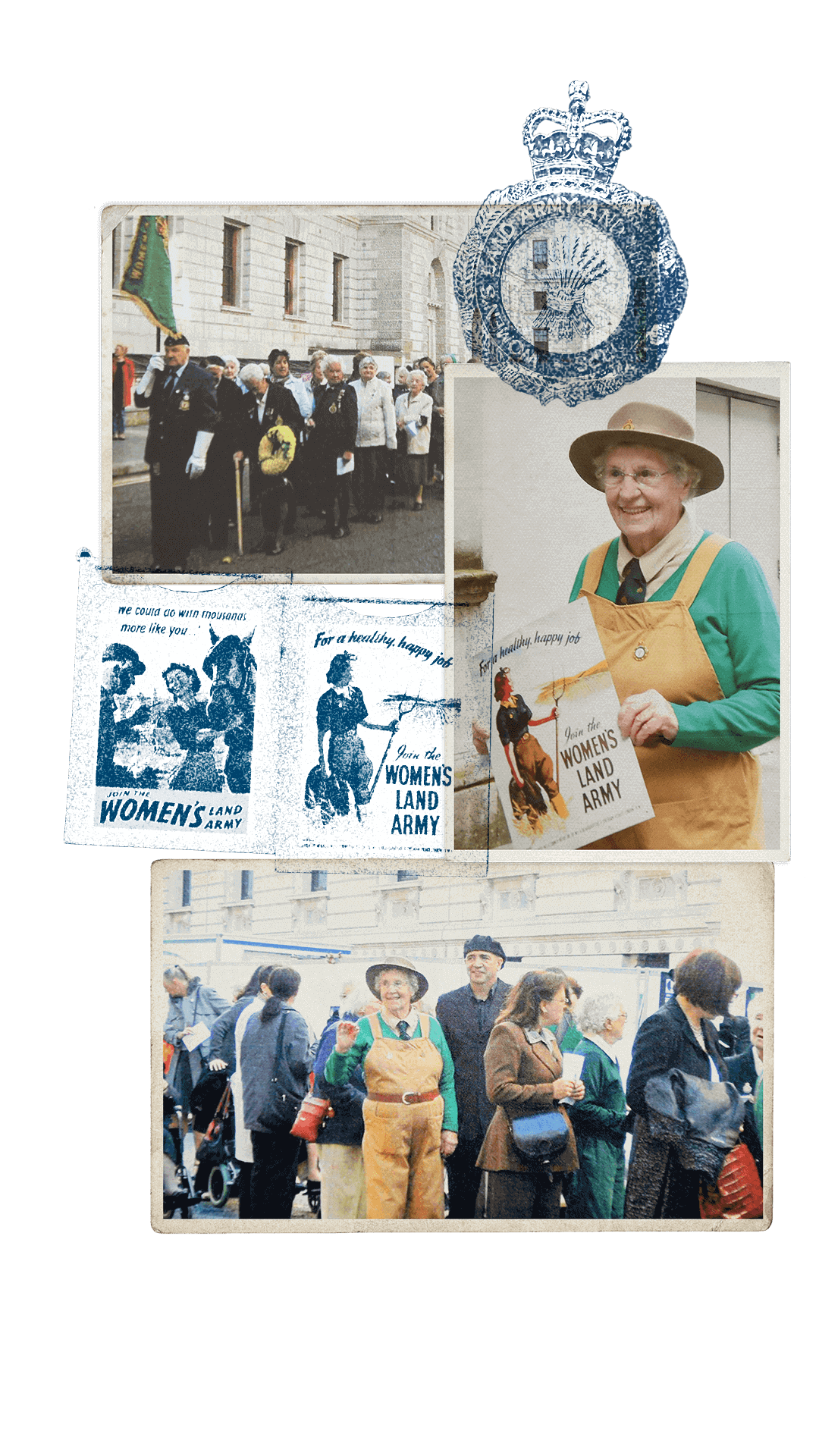
She was so keen to become a Land Girl in 1940, the then 16-and-a-half-year-old told a white lie, and pretended she was 17 so she could enrol.
With the male farm workers away fighting, women, like Annie, kept the farms and food chains alive at home.
Up at 05:00 and not in bed until 23:00, Annie would milk the cows, plough the fields, feed the animals and collect the eggs. It could be dangerous work.
"I went down the field to fetch the horse," she remembers. "His name was Ginger, and I patted it on its bum, and I said, 'Come on, Ginger,' and it just kicked me."
Annie "went up in the air", she says, and had to take a week off work to recover.
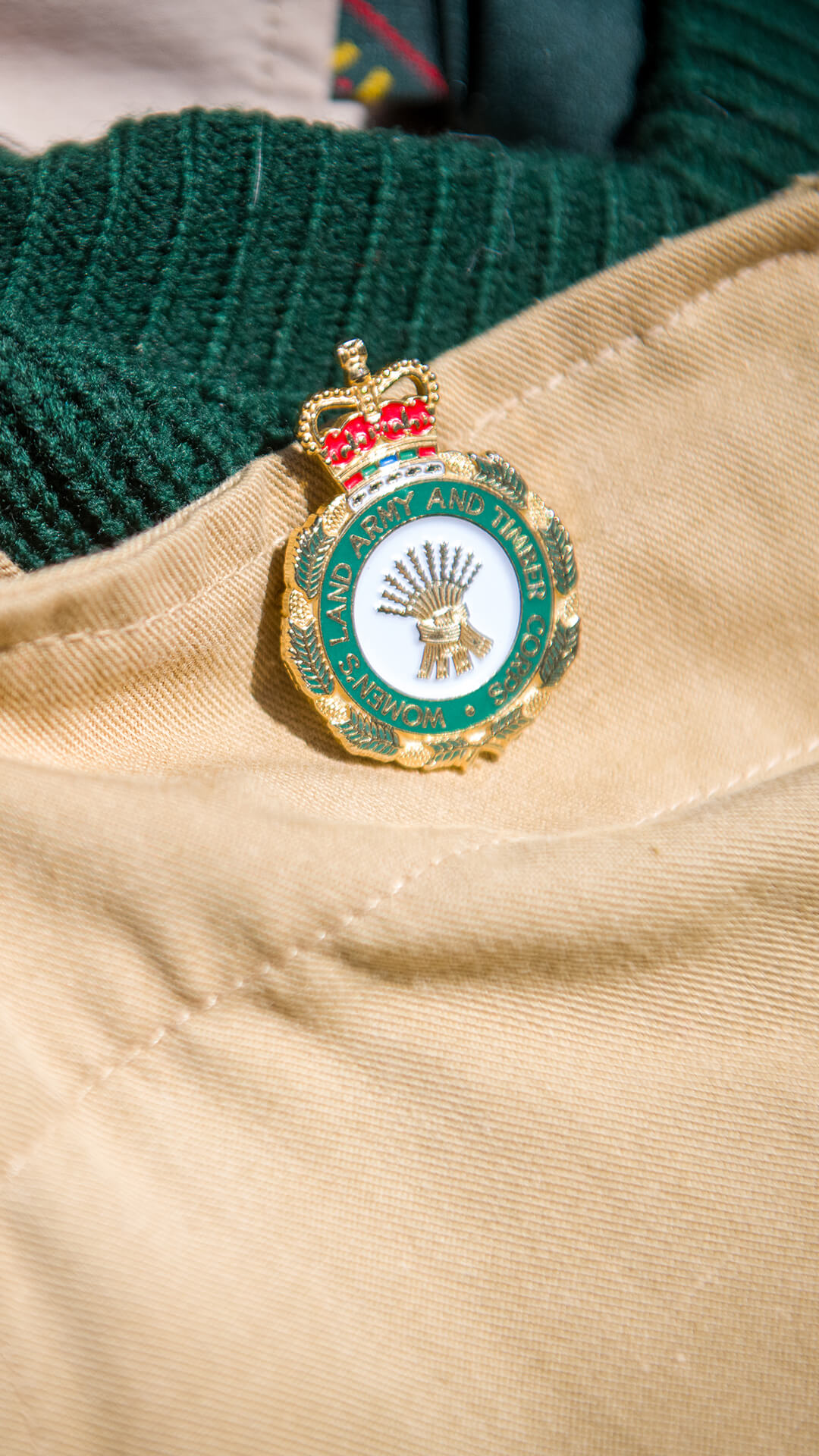
When Prime Minister Winston Churchill finally announced victory in Europe, Annie remembers hearing it on the radio. "We all went mad," she says.
"We had a bit of a party ourselves on the farm and then, when milking was done, we went up to the town to see what was going on.
"There were tables in the middle of the road, everywhere, and everybody was having a party. Singing, dancing, music. And there were flags all over the place."
Children shouted and squealed excitedly, says Annie, "playing about, knocking cups of tea over".
But there was also a poignancy about the celebrations.
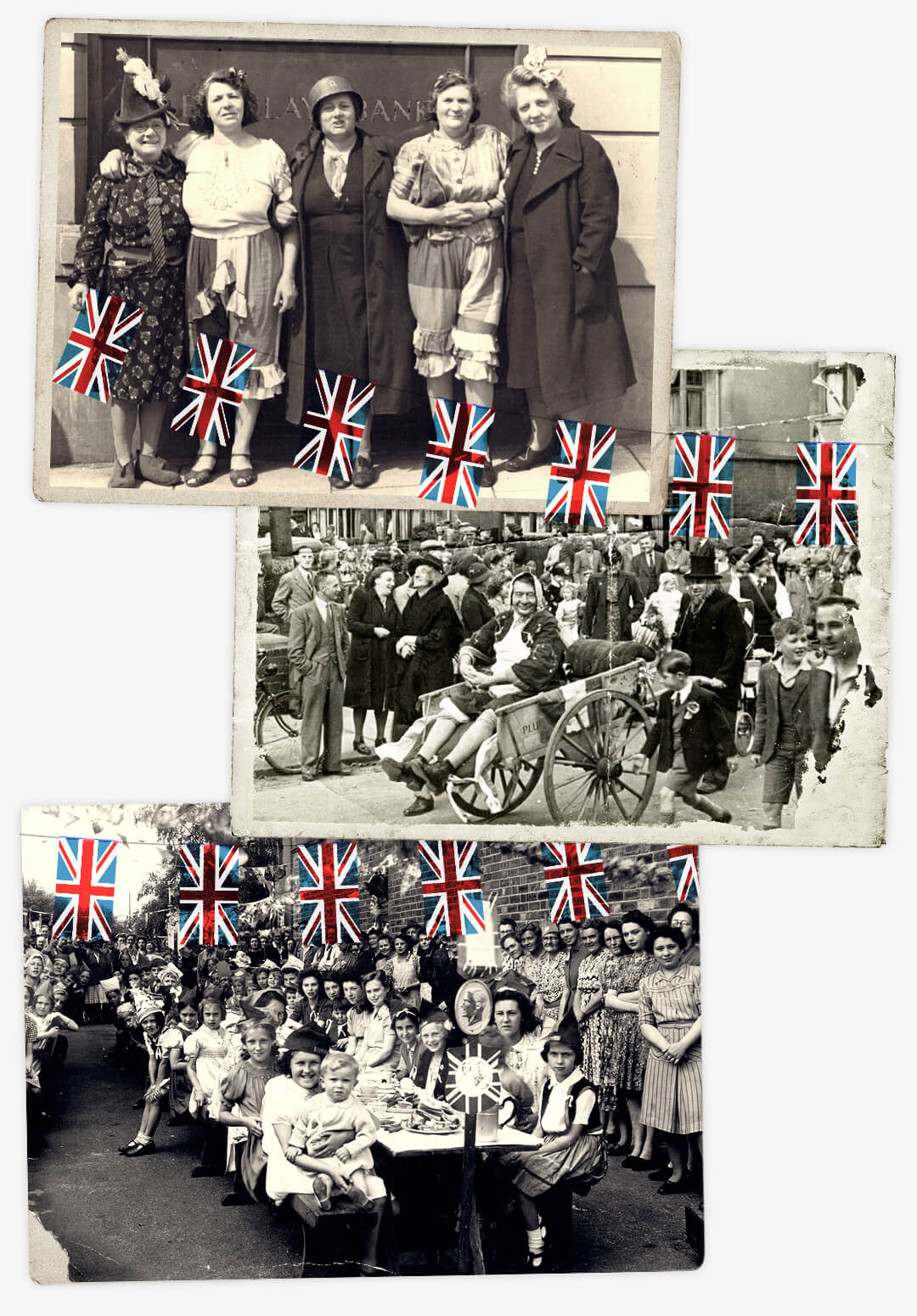
Eighty years on, she is planning to mark VE Day again, but will be taking it "a bit steady this time", she says.
"I shan't feel like enjoying, shall I?" says Annie, for as time goes by, there are fewer people to celebrate with.
At its peak in 1944, there were more than 80,000 women, like Annie, working in the Land Army, feeding the nation. Thinking of her time on the farm she says, "I'd go back if I could."
And if someone asked her to plough a field again, “I could do it now,” she adds.
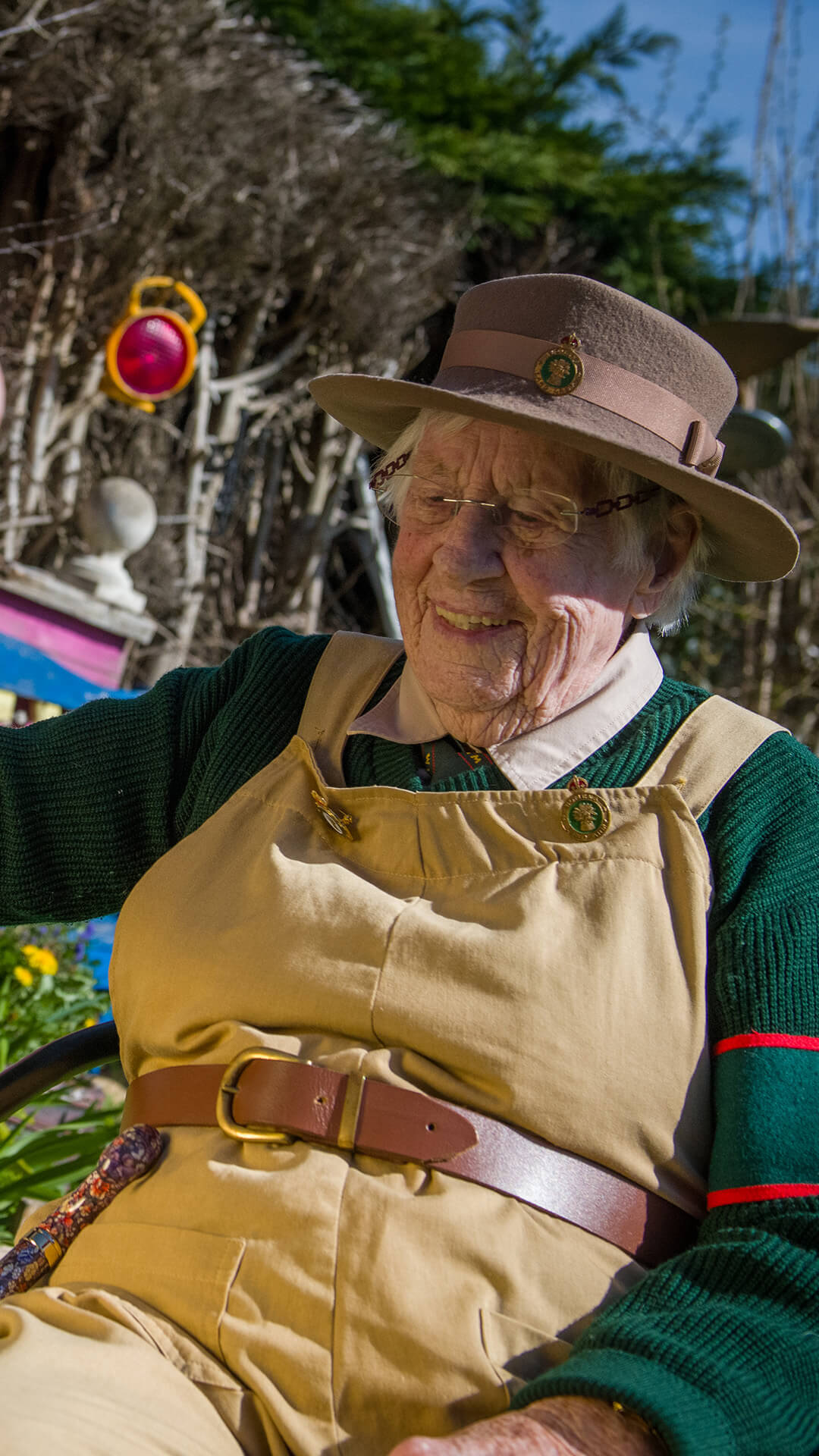
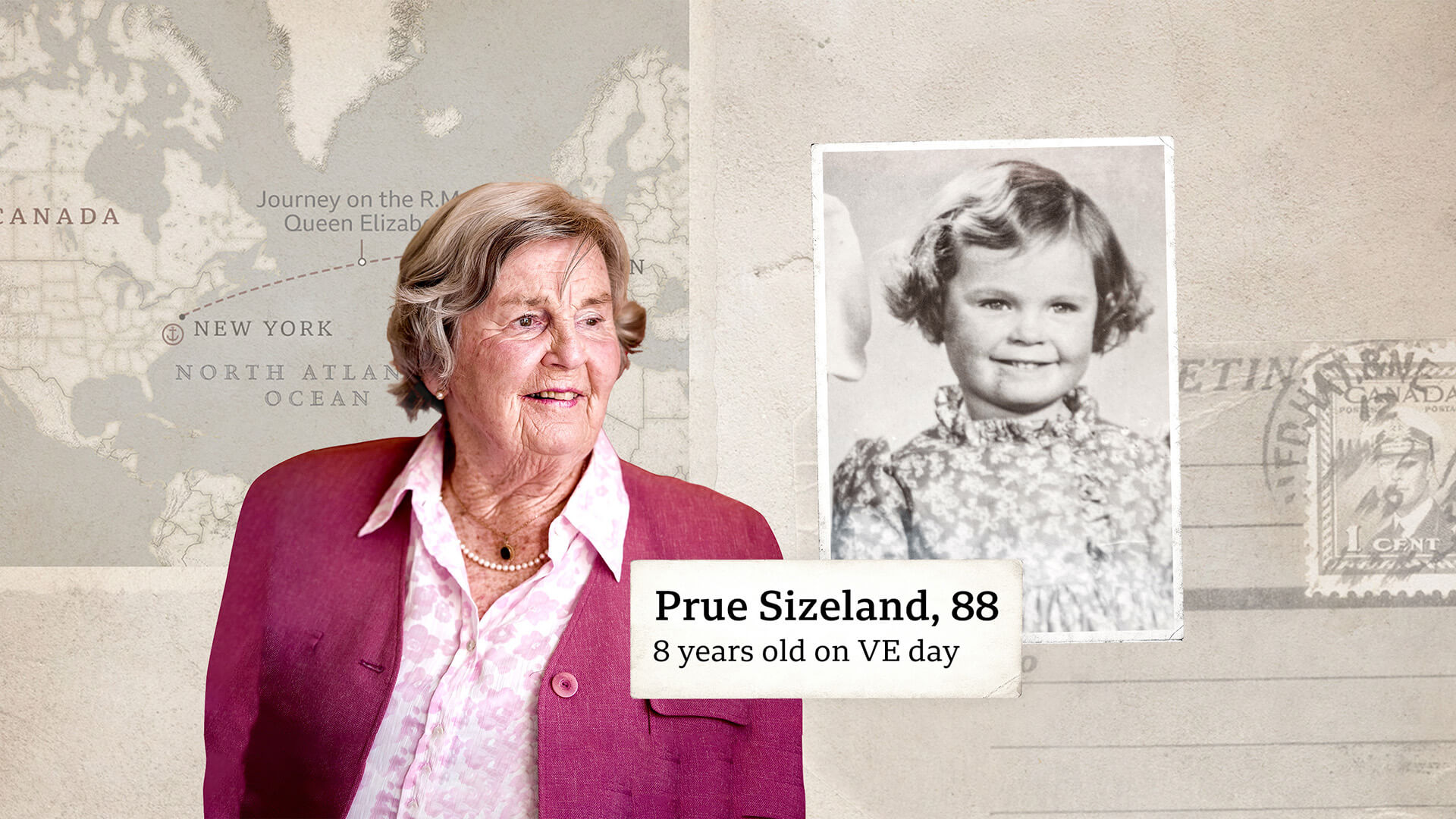
'Coming home to see my daddy'
Prue, now 88 years old, spent the war years on a different continent, far away from her home town of Croydon in south London.
In September 1940, her father had sent his family to Toronto, Canada, to escape the threat of invasion, says Prue.
Working in the RAF Signals, he had been selected for secret service work. One of his appointments had been at the home of the British codebreakers, Bletchley Park.
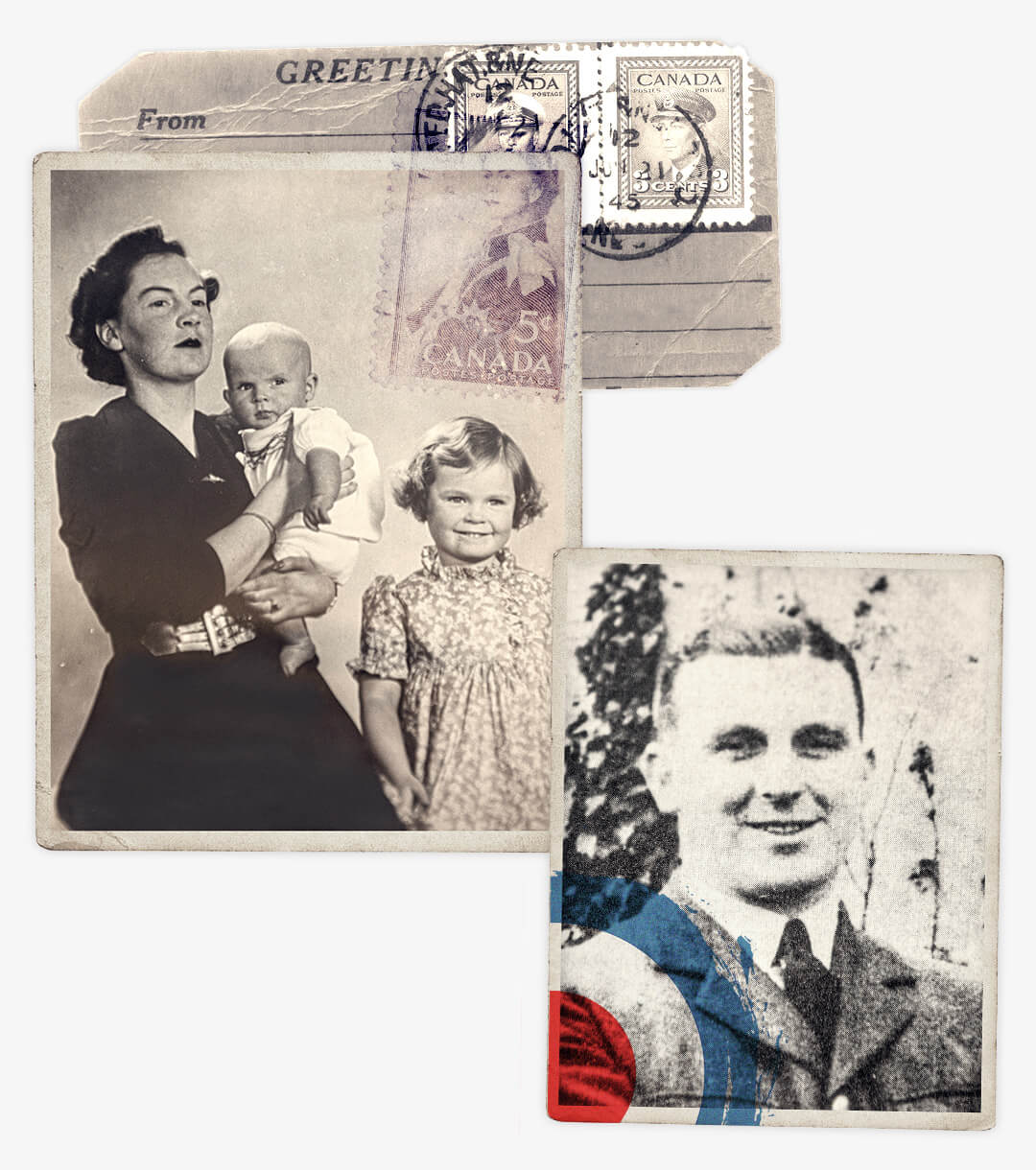
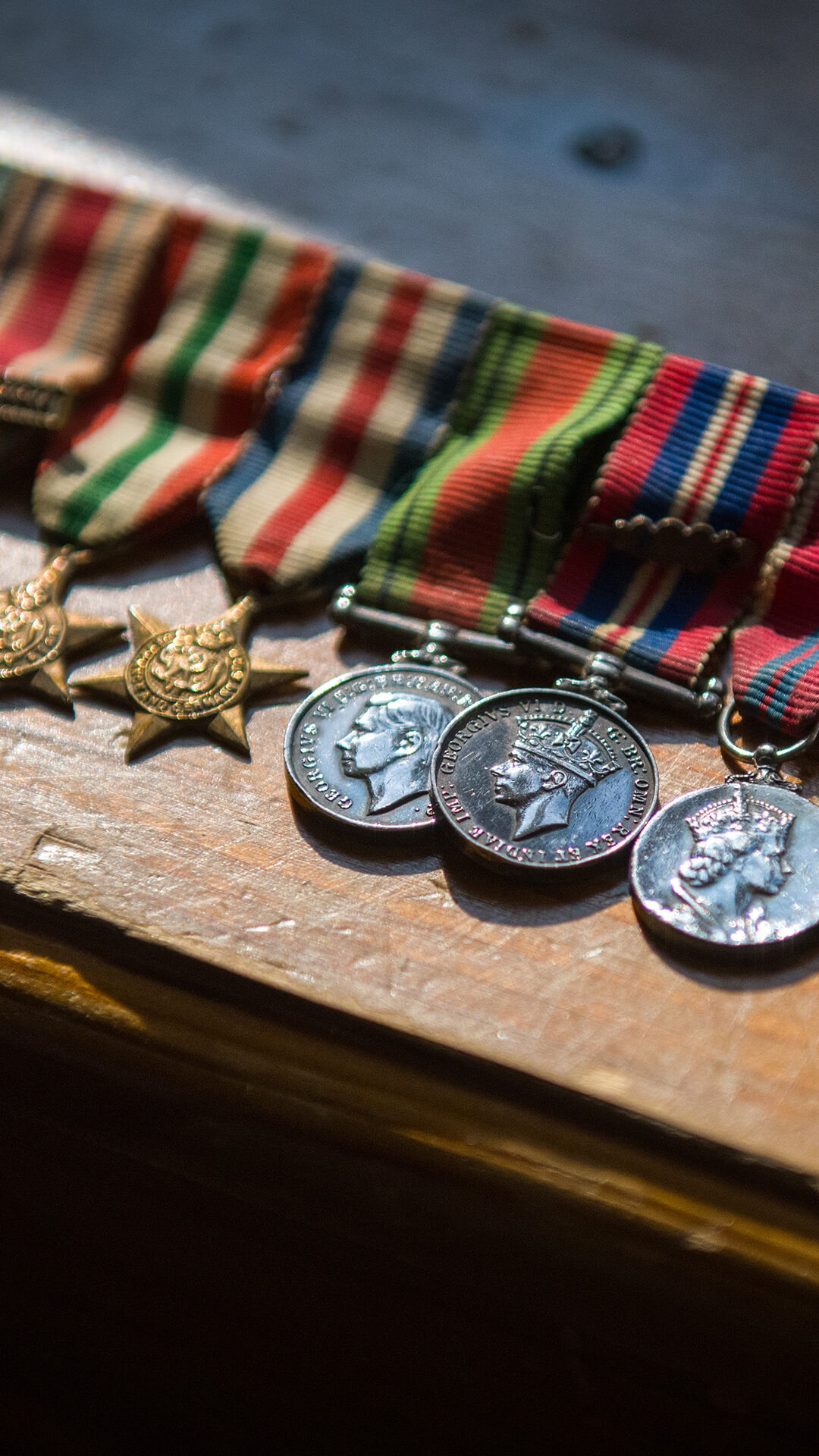
"My mother had only £25 from, I think, the government to go," says Prue. "Seven months pregnant, no husband, me age three. It was quite a problem for her, poor thing."
Despite being teased about her English accent at school, Prue, her mother and younger brother, who was born in Canada, were treated as war guests, she says. A stark contrast to life back in Britain.
"They were suffering bomb damage, rationing," she says. "We had no rationing. We had bananas, we had candy."
If the family had travelled on another ship just a week later, their fate may have been very different though.
A ship, the SS City of Benares, was taking 90 children from Britain to Canada when it was torpedoed by a German submarine.
"That really got through to my mother," says Prue. "I remember she used to quote it a lot after the war, saying how lucky we were."
On VE Day, Prue remembers dancing in the streets, but she didn't really know what she was celebrating, she says, just that it meant she could go home.
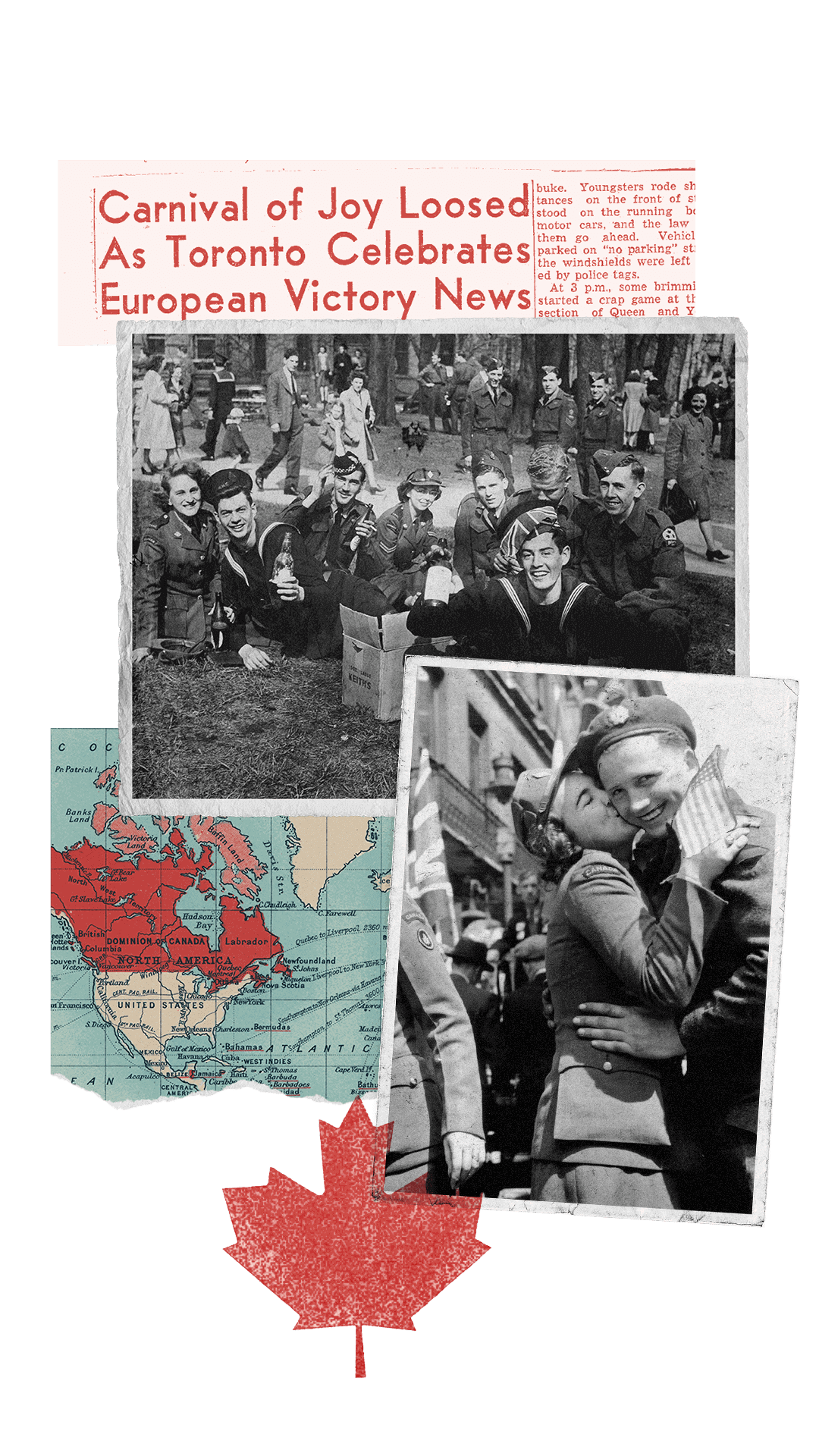
The family returned to Britain on RMS Queen Elizabeth in September 1945, which had been commissioned to bring home the troops, says Prue.
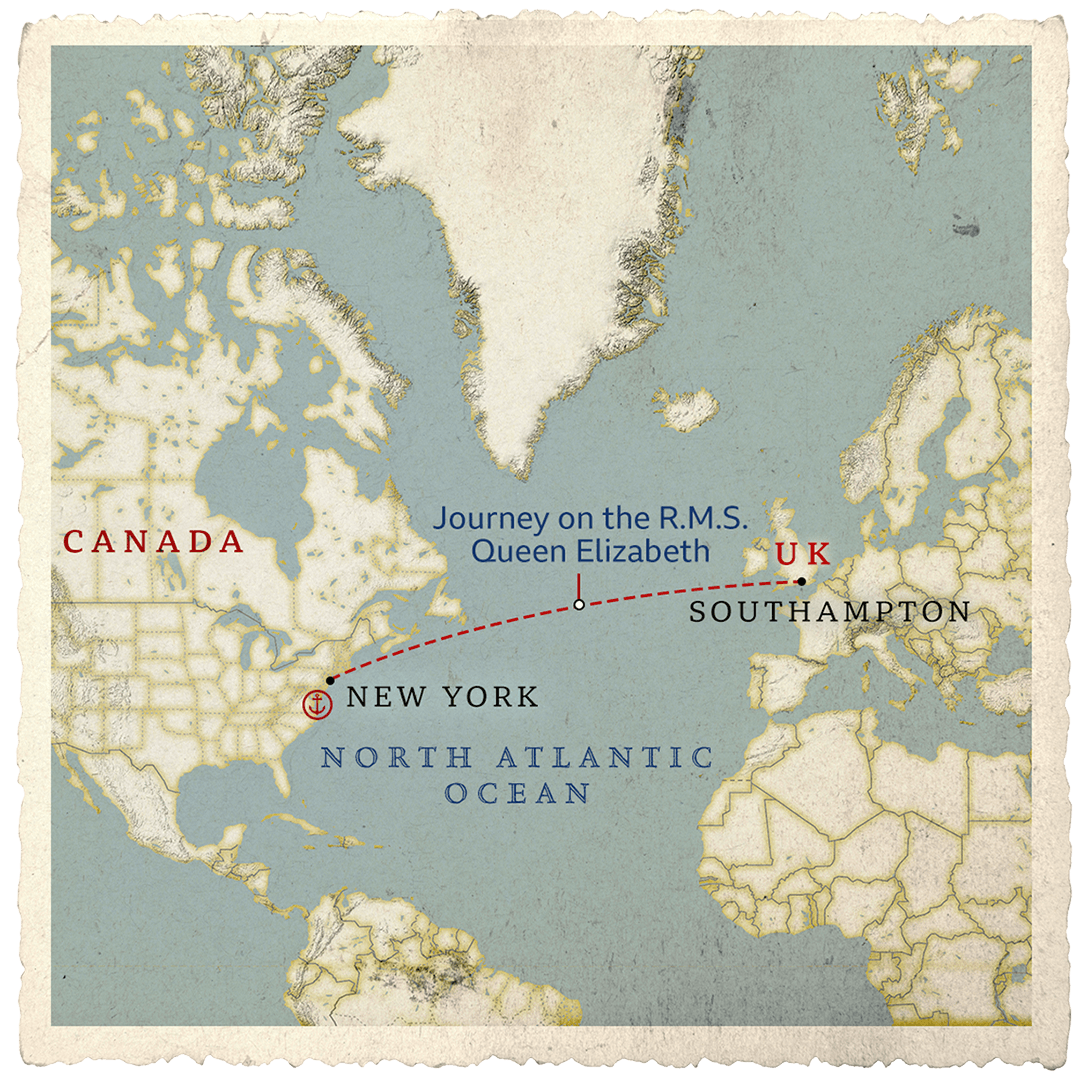
She believes some of the people on the ship may have been former prisoners of war in Japan.
"I just remember these terribly thin men in khaki uniforms with round spectacles and they were so pleased to see us children. It was lovely," she says.
"They kept wanting to offer us candy, which was no real treat, but it was very kind of them."
Prue, who now lives in West Sussex, will be celebrating the anniversary of VE Day with her fellow care home residents.
"There are so many of us," she says. "We've all got a story because we're elderly people."
There will be a "knees up", "a jolly good party and a few drinks", she says. Maybe even some fizz.
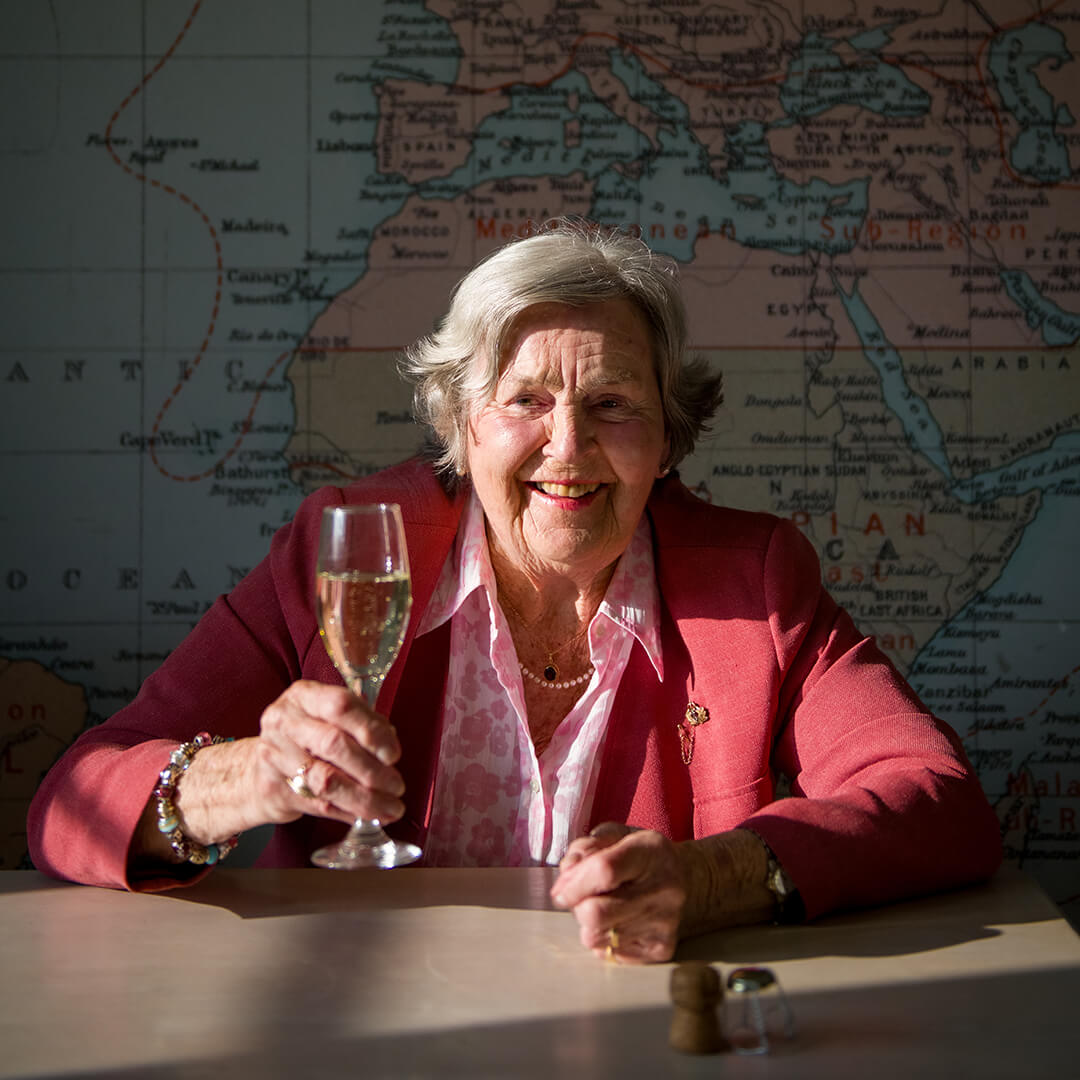
But with war still casting its shadow in Europe, she does not forget the suffering of the Ukrainian staff at her care home.
"I consciously go up and give them a hug when I see them because I feel so sorry for them," says Prue. "I think it's tragic."
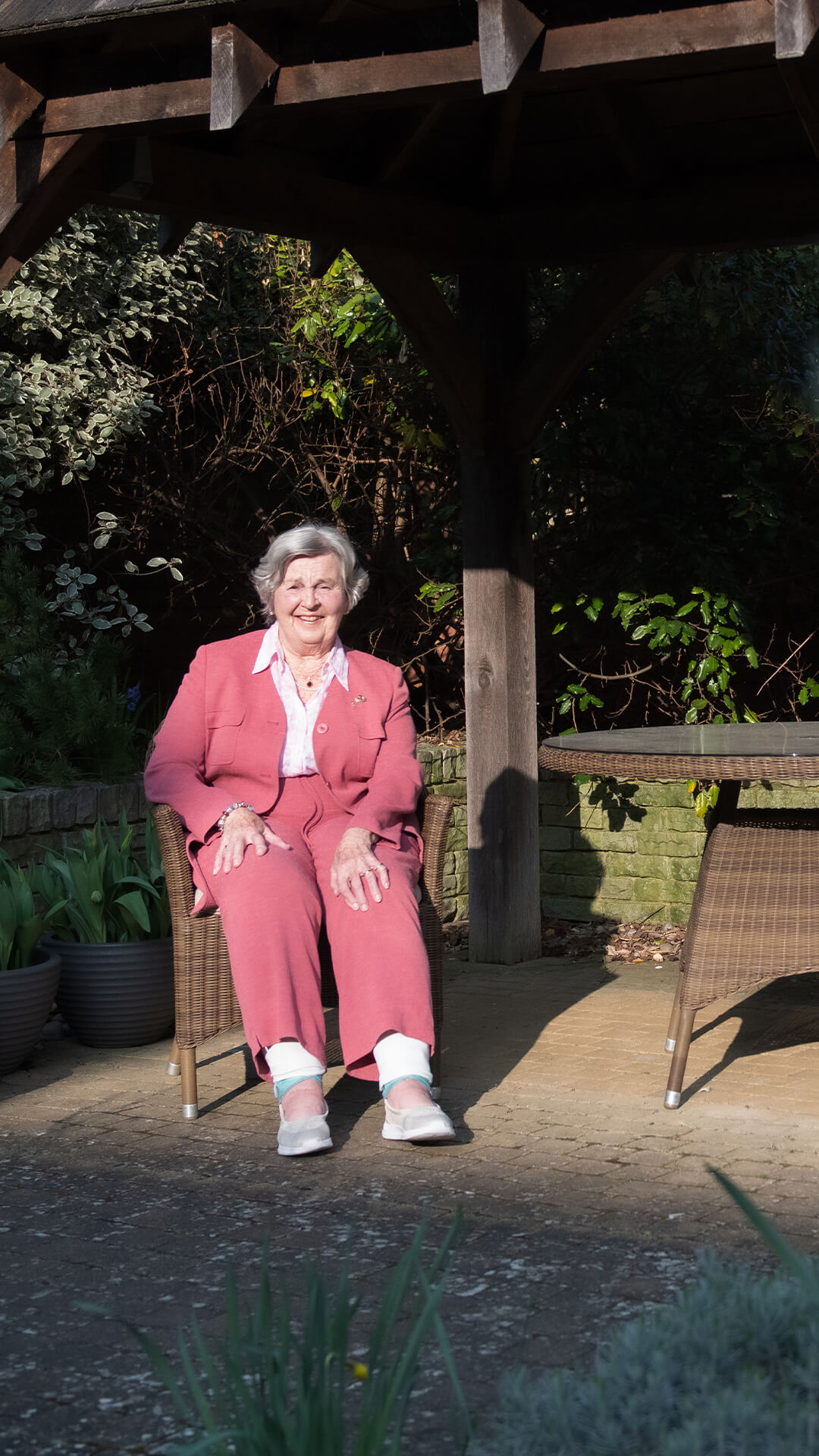
Produced by
Elise Wicker
Photography by
Emma Lynch
Design by
Lily Huynh and Mansi Katta
Image credits
Hinckley District Past & Present Archive
